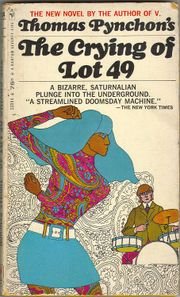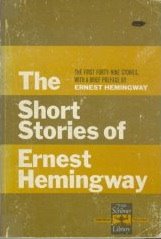 With a name like Pinckney Benedict, how can you not be a writer?
With a name like Pinckney Benedict, how can you not be a writer?Pinckney Benedict. Say it with me, everyone at once, "Pin-ck-ney Ben-a-dict-ttt". Now, wasn't that fun? The moment I heard it, I knew I had to pick up his book. Any book. Whatever! Imagine my convivial motions of gratitude when I found that his first published work was a collection of stories about the South, and not about the easy southern gentrified living associated with stories involving New Orleans ("The Big Easy"), but the back-country south where trailer parks and beer drinking blue collar men (women too) are as much a part of life as the overwhelming sound of crickets at night. Bonus!
These stories deliver. This is Benedict's first collection of short stories (the inside flap says, at the time of publication, he was enrolled in the graduate writing program at the University of Iowa - famous for big names). Even so, his talent is raw and unfettered.
Town Smokes is best when the dialogue isn't forced, which it is, at times. Still, it's pretty hard to write entire stories (which he does) with a country accent and make it believable, so kudos to Benedict for (mostly) succeeding. There are moments that briefly teeter on becoming cliche or too on-the-nose, but Benedict knows, skillfully, when to pull back. His talent really comes through in the suspenseful, devastating story Dog, about a man afraid to pull a dying dog out from underneath his trailer. The title story, too, is a superb coming-of-age allegory that's tender and tough at the same time. A boy struggling to get over the death of his father decides to go into town for some "town smokes", because he's sick of rolling his own tobacco, the way his father did. He realizes he doesn't belong, but that realization brings another, more profound one, and his choice is enlightening and perfect. And the first story in the collection won an award. That means it's good!
The people in these stories come alive with each story, so that by the end you have a whole imagined town, a vignette of the south that's hard to leave because it's so real. It's no escape for the people in these stories, but it's definitely one for me. Benedict is from West Virginia, beautiful country known for its rural ways. I love rural stories, they ignite something inside of me. I'm not sure if that's necessarily a good or bad thing, but I'll take it without too much analysis.
The cover's neat, simple, and conveys the book well. I especially like the saw. I know someone that wants to play a saw. I wonder why she doesn't?



